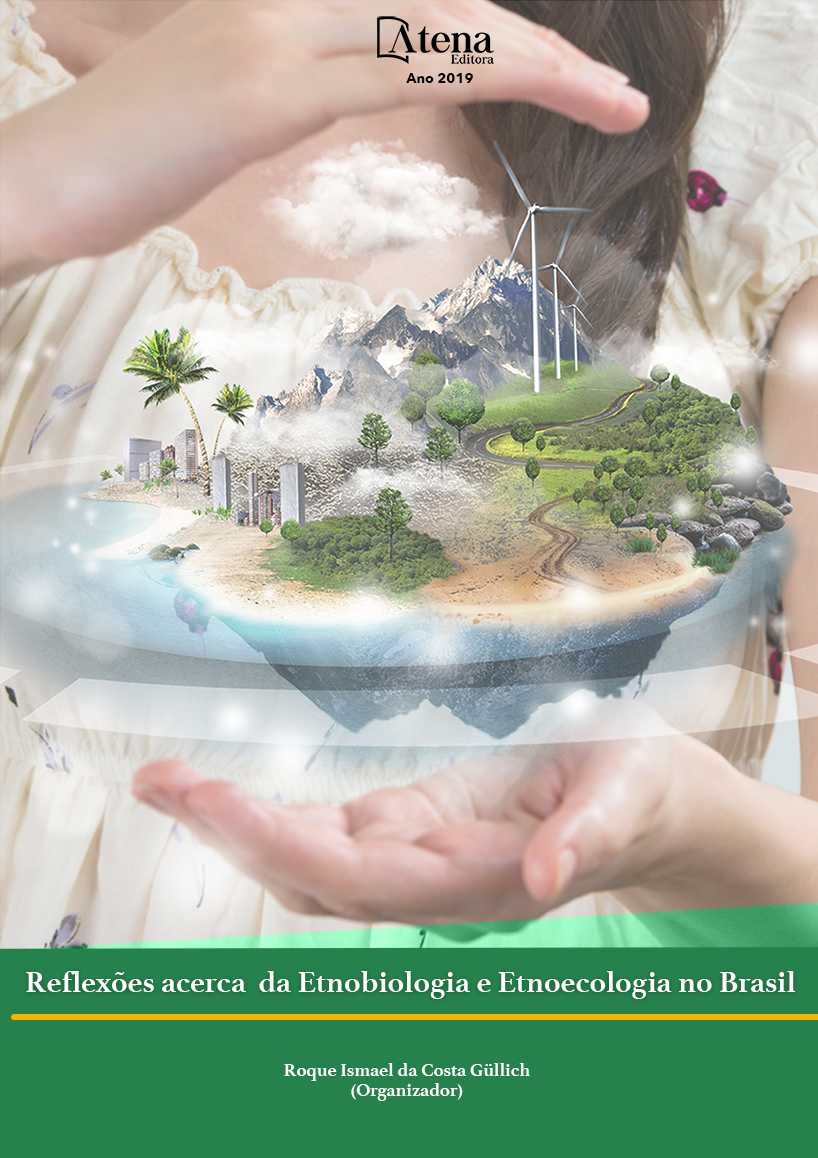
ESTUDO ETNOECOLÓGICO SOBRE O RIO SANTA MARIA DO RIO DOCE: COMO DIFERENTES GERAÇÕES SE RELACIONAM COM O RIO
A água é um dos recursos de maior
preocupação na atualidade e a agricultura
é a atividade que causa maior impacto neste
recurso. Conhecer como as comunidades de
agricultores usam e percebem o rio e como
essa percepção mudou nas diferentes gerações
é importante para a promoção de ações de
preservação deste recurso. O objetivo deste
trabalho foi conhecer como duas gerações de
moradores da comunidade de São Sebastião,
município de São Roque do Canaã-ES,
percebem o Rio Santa Maria do Rio Doce e,
a partir disso, promover ações de educação
ambiental. O estudo etnoecológico consistiu em
oito entrevistas, sendo quatro com a primeira
geração (pais) e quatro com a segunda geração
(filhos). A análise das entrevistas foi realizada por
meio da Análise Textual Discursiva. A primeira
geração possuía uma relação de proximidade
com o rio, pois o utiliza para atividades diárias
e também para o lazer. Já a segunda geração
descreveu uma relação de proximidade com
o rio na infância, porém somente em relação
às atividades de lazer. As duas gerações se
distanciaram do rio e, atualmente, não fazem
nenhum uso desse recurso em seu cotidiano,
apenas para irrigação. Os dados deste estudo
subsidiaram ações de Educação Ambiental
com as crianças da comunidade, buscando a
sensibilização e a construção de um sentimento
de pertencimento e responsabilidade com o rio
e com a comunidade
ESTUDO ETNOECOLÓGICO SOBRE O RIO SANTA MARIA DO RIO DOCE: COMO DIFERENTES GERAÇÕES SE RELACIONAM COM O RIO
-
DOI: 10.22533/at.ed.0221905029
-
Palavras-chave: Etnoecologia. Geração. São Roque do Canaã. Educação Ambiental.
-
Keywords: Ethnoecology. Generation. São Roque do Canaã. Environmental education
-
Abstract:
Water is one of the resources
of greatest concern at the present time and
agriculture is the activity that causes the greatest
impact in this resource. Knowing how farmer
communities use and perceive the river and
how this perception has changed in different
generations is important for the promotion of
actions to preserve this resource. The objective
of this work was to know how two generations
of residents of the community of São Sebastião,
municipality of São Roque do Canaã-ES,
perceive Rio Santa Maria do Rio Doce and, from
this, promote environmental education actions.
The ethnoecological study consisted of eight
interviews, four of the first generation (parents)
and four of the second generation (children).
The analysis of the interviews was carried out through Discursive Textual Analysis. The first generation had a relationship of proximity
to the river, because it uses it for daily activities and also for leisure. The second
generation, however, described a relationship of proximity to the river in childhood, but
only in relation to leisure activities. The two generations have distanced themselves
from the river, and nowadays they make no use of this resource in their daily lives, only
for irrigation. The data of this study subsidized actions of Environmental Education with
the children of the community, seeking the sensitization and the construction of a sense
of belonging and responsibility with the river and with the community
-
Número de páginas: 15
- Aline Araújo Vago


